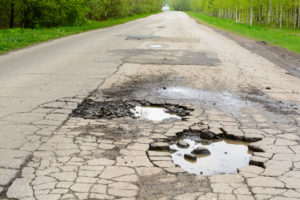No matter how you look at it, investing in real estate is a risky proposition, but it can also be hugely rewarding. When you consider probate properties, the pros and cons of investing have to be weighed. We can’t tell you if probate property investing is right for you, but we can help you see the good and bad sides so you can make an educated decision.
The pros of buying probate property:
Large Selection
This may sound a bit crass, but people die every day, and they leave behind houses and properties that have to be dealt with. Properties usually end up in probate because the deceased didn’t have a will, and the state steps in to sell the property. In most cases, there are debts that need to be paid from the estate, the property has to be sold to give heirs their cut or the heirs can’t agree on what to do with it. This isn’t something that happens occasionally: there are always probate properties available.
Motivated Sellers
Very often, there is a sense of urgency behind selling probate properties, giving the savvy investor a little bargaining power. Typically, the heirs aren’t interested in owning the home, and they aren’t willing to put anything into improvements to sell. Making a cash offer and having at least 10 percent available for the down payment, is one way to get the heirs’ attention. Offering to close on the deal quickly, especially when the seller is highly motivated, also stacks the cards in your favor.
The cons of investing in probate property:
It Takes Time
When purchasing property through a probate court, even with motivated sellers, there can be a wait time of several months. There are multiple parties involved in probate properties, from the heirs, to the executor of the estate, to the probate attorneys, and the court. A probate property purchase is not something that can be done overnight, to say the least. Disagreements between heirs and the unsettled financial obligations of the deceased complicate the process of settling an estate. It can take months, or even years to finally reach a resolution.
You Could Lose Money
When you make an offer on a probate property, you’re often required to include 10 percent of the offer price as a non-refundable down payment. Even if your offer is accepted, you can still lose out on your down payment and lose the chance to buy the house. In some areas, probate properties are advertised at the accepted offer price, plus a percentage of the price. This then becomes the new probate price and the house is marketed using the new figure, opening the door for other investors. It’s a risk that may not be worth taking if you’re short on cash reserves. You might be better off investing in other niches.
Probate properties present a lot of unique challenges to both novice and seasoned investors. If you have questions about how to invest in probate property, contact us. Our professional staff will be happy to answer your questions and offer expert advice on the subject.






